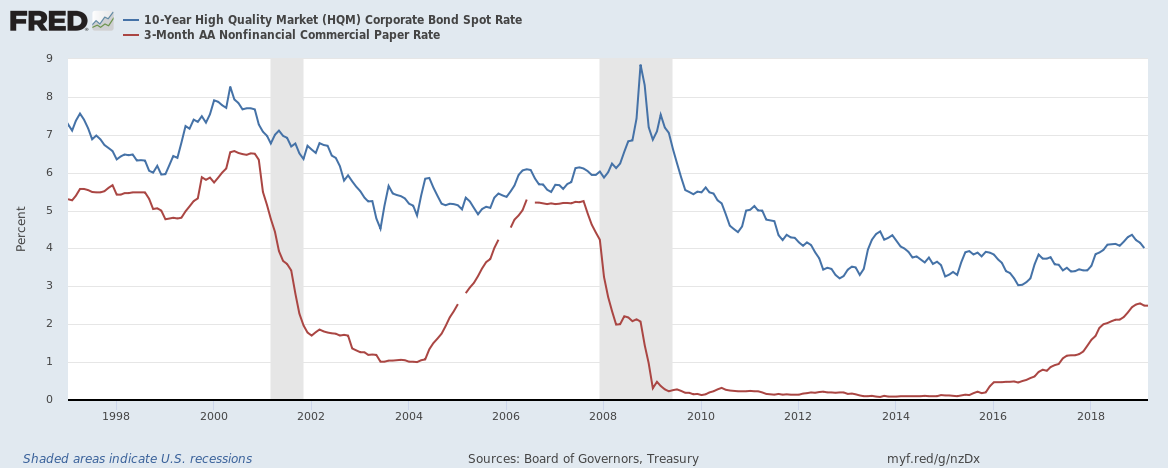The wording seems incorrect, the only thing that appears to make sense is “higher spread,” since as you note, bonds are issued with longer maturities. The yield differential would depend on the slope of the curve.
Whether “higher spread” is accurate is yet another question. I did not spend much time looking at corporate bond data, but spreads normally increase as maturity lengthens for firms that are strong credits. A bond that is secured against specific collateral might trade tighter, but most “corporate bonds” are unsecured (as opposed to asset-backed securities). However, commercial paper may have wider spreads for banks, as the bonds may be senior versus commercial paper. (I’m guessing about that.)
